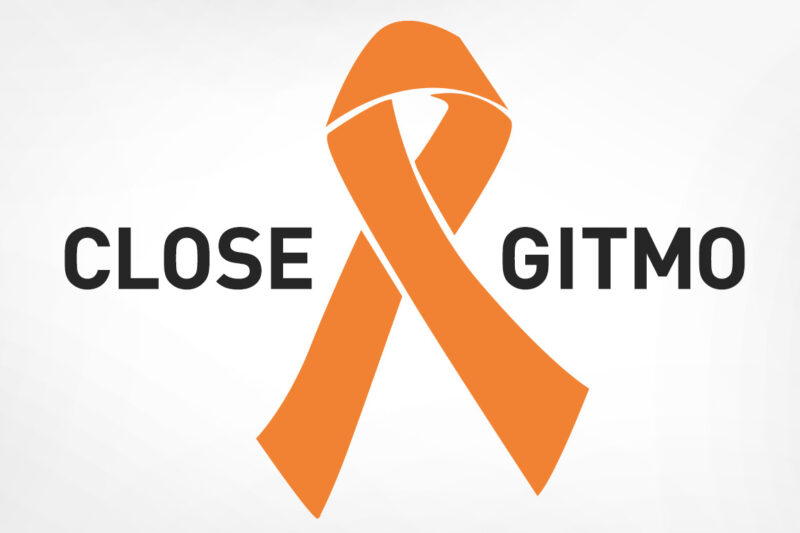In Guantánamo 9/11 Pretrial Hearings, Defense Attorneys Protest Obstacles to Effective Counsel


You cannot have a meaningful, effective relationship with a client when people who are not within the [attorney–client] privilege stand between you and the client. — David Nevin, defense counsel for Khalid Sheikh Mohammed
With those words, Mr. Nevin summarized his position and that of the other four defense teams in the pre-trial hearings in the 9/11 military commission held at Guantánamo Bay, Cuba, and observed by the ACLU via delayed feed at Fort Meade, Maryland, between June 17 and 21. The week was dominated by testimony from military officials tasked with overseeing the detention of the military commission defendants at Guantánamo. By week's end, a picture of defense-counsel frustration emerged; in the words of Cheryl Bormann, lawyer for Waleed bin Attash, "The gig was rigged."
The recent hearings in the 9/11 case were only the latest military commission proceedings, which the ACLU has monitored since they began, to draw attention to the system's many faults. ACLU staff attorney Alex Abdo has helpfully explained the main objections to the commissions, as summarized by Mark Martins, the commissions' chief prosecutor: "the commissions are ‘unsettled,' ‘unfair,' ‘unnecessary,' ‘unknown,' and ‘unbounded.'" Issues have ranged from over-classification and a lack of public access, to a lack of resources for the defense teams. The hearings in June highlighted another problem: the inability of defense counsel to perform their duties due to restrictive, confusing, and inconsistently applied orders regulating their communications with their clients. (You can read about recent revelations of attorney-client surveillance at Guantánamo here.)
At stake were the barriers the military has erected between defendants and their lawyers, including provisions put in place by Admiral Woods, the former commander of Joint Task Force-Guantánamo, that regulate the flow of information into the detention facility. The defense argued that those provisions both breached attorney-client privilege and banned materials necessary to the defense, making it impossible for defense counsel to do their jobs effectively. In one instance, Ms. Bormann said she had been barred from bringing a copy of The Black Banners, a book by Ali H. Soufan that has a chapter devoted to her client, Waleed bin Attash, to a client meeting at the detention center. She suggested a solution that laid plain the absurdity of some of the rules, asking Admiral Woods if she could send her client a re-typed version of the chapter, signed by her and marked as privileged information. He answered yes because that document would fall under the definition of privileged communications, which can be delivered to the detainees, while the book itself would not.
Ms. Bormann's example also reveals the narrow range of materials defense counsel have been allowed to share with their clients. According to the language of the controlling orders, the only materials defense counsel can deliver to their clients as privileged materials—meaning, they are supposed to go unread by the government—are documents specifically written by counsel to the defendant. Beyond this restriction, the government also strictly regulates the allowable content of any communications between attorney and client. For example, "contraband" includes information about the defendants' torture while in detention; as defense lawyers argued in commission filings, their clients' "torture during confinement is an important element of their defense, which cannot be competently investigated, documented, or presented in court in the absence of full discussion with them."
Other points of contention at issue before the military commission in June were the use of "privilege teams" and a so-called "baseline review" to screen material. As part of the baseline review, which was conducted in October 2011, guards took bins out of all detainees' cells—including bins designated for legal materials—and searched them. In order to determine if material was privileged, the guards would have to review it. As the defense argued, that procedure violated attorney–client privilege, which broadly protects that kind of material from being read by third parties. The privilege teams were also set up to screen legal mail. Because government privilege teams' review of communications could also violate attorney–client protections, defense counsel were instructed by the head of their office not to comply with the new monitoring rules.
These obstacles to effective counsel come in addition to restrictive rules imposed by the commissions themselves—rules that even include the classification of defendants' recollections about their torture by the same government that is trying them. As defense counsel continually reiterated at the last hearings, these military trials are capital cases in which the lives of the defendants are at stake. Particularly when the consequences are so grave, procedures that impede a vigorous defense substantially undermine the fair outcome that criminal trials are intended to achieve. Judge Pohl must now decide whether to issue an order regulating communication with the defendants—an order that would both create rules governing attorney-client communication and define defense counsel's ability to work with clients to mount an effective defense.
It's important to note that at least a week of testimony and argument was spent on matters that would normally be uncontroversial in our criminal justice system. Both this seemingly ad hoc decision-making process and the interference with adequate representation it was meant to settle are two of the many reasons that the ACLU continues to oppose the United States' use of military commissions to try military detainees and to call for the close of the Guantánamo detention facility.
Learn more about Guántanamo Bay and other civil liberties issues: Sign up for breaking news alerts, follow us on Twitter, and like us on Facebook.

